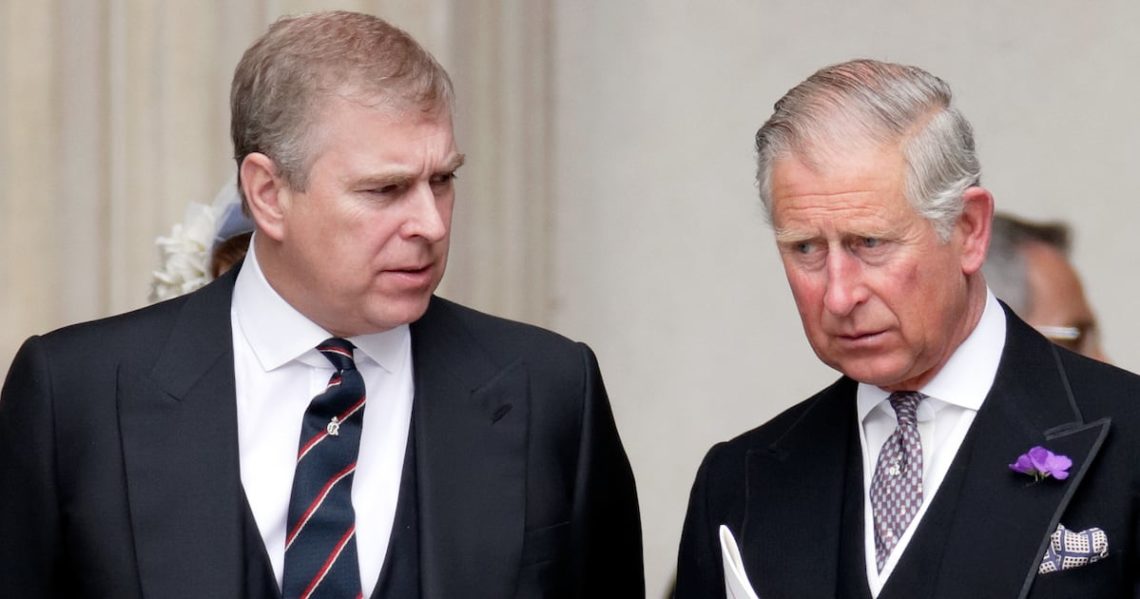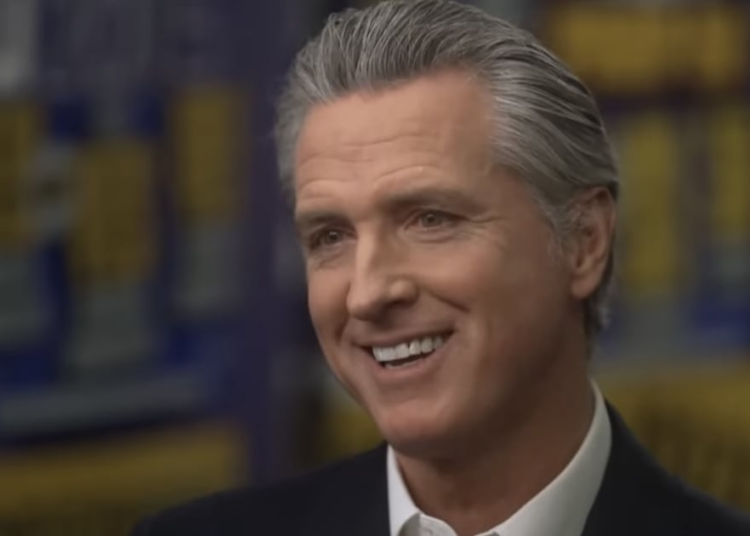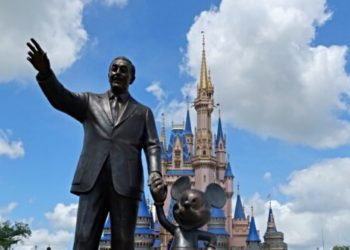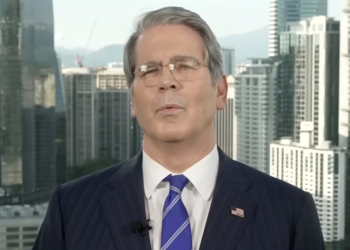In Sunday’s big royal story in the London Sunday Times, King Charles’ camp is blaming the late Queen Elizabeth II for the Andrew problem.
“It seems to me that Queen Elizabeth has quite a lot to answer for,” one source was quoted as saying. “It’s as if she left an unexploded bomb for Charles.”
The king’s camp is now seeking to pin the most toxic scandal of the Windsor age on a woman three years dead, whose devotion to her role made her a byword for duty. This tells you everything you need to know about the chaos inside the fragmented and fried court of Charles III.
Let’s start with the events of October 2017, when Sir Christopher Geidt was forced out of his role as private secretary to Queen Elizabeth II in a palace “coup” engineered by King Charles III (then Prince of Wales) and (ironically enough) supported by Prince Andrew.
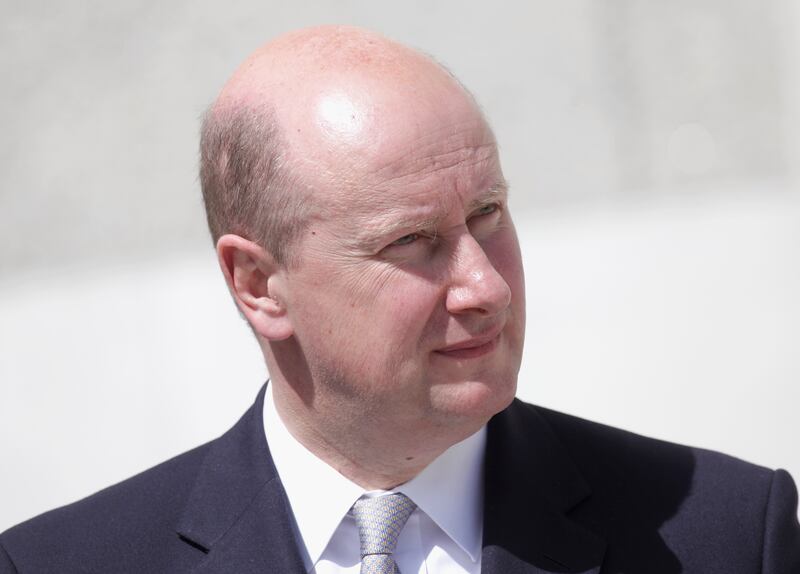
Geidt was regarded as one of the last genuinely independent-minded figures in the Royal Household, someone who could, on rare occasions, say “No” to the monarch. He had earned a reputation for steadying the institution. His departure signaled the moment when Charles began to assert operational dominance over the monarchy, leaving the queen with a less visible role in decision-making.
Decisions once flowing from the sovereign were now routed through the Prince of Wales’ office.
The queen, though still the symbol, was increasingly infirm; the machinery of rule was under Charles’ control. The suggestion that she should have personally overseen the eviction of her own son while dying is absurd. If anything, the failure to act more decisively in those years lies squarely with the man who was, for all practical purposes, already king.
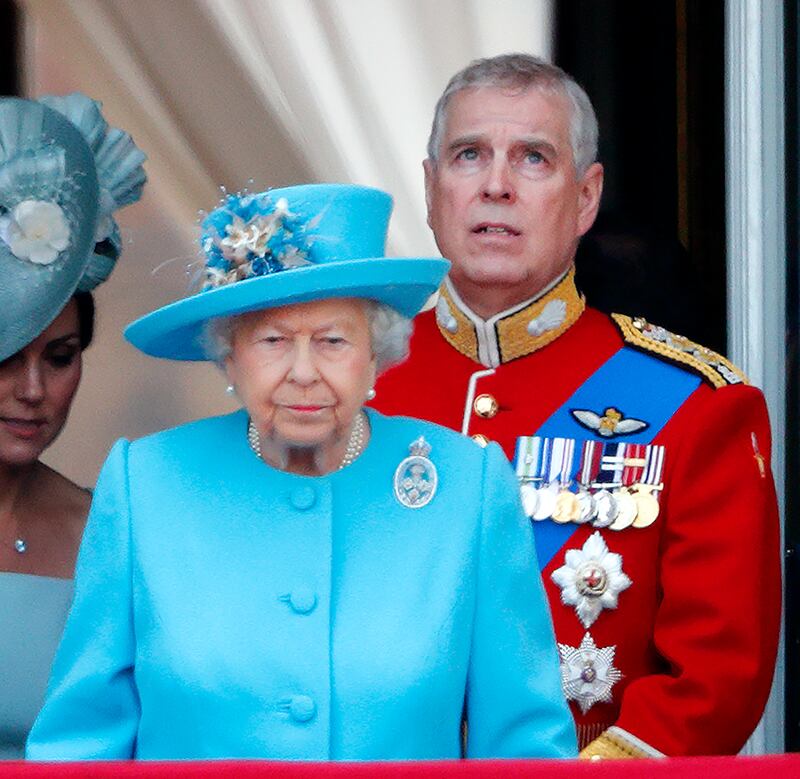
From that point onwards, with the queen increasingly constrained by illness and pain, Charles essentially functioned as co-monarch in all but name.
The formal transition began as significant power quietly shifted, and he increasingly steered strategy, personnel, and public affairs decisions.
The fact that the queen was later revealed to be suffering from bone cancer and increasingly incapacitated lends a particular texture to Sunday’s claims that she indulged Andrew, when Charles’ camp has repeatedly sought to use his cancer (which is horrible but has not left him bedridden and in agony as the queen often was) as an excuse for his misjudgments and weakness.
The reality is that Charles was already pulling many of the strings by 2019. He was the mastermind behind the 2020 decision to strip Andrew of his HRH, and the 2022 decision to settle with Virginia Giuffre, who alleged that Andrew raped her three times, and who died by suicide earlier this year.
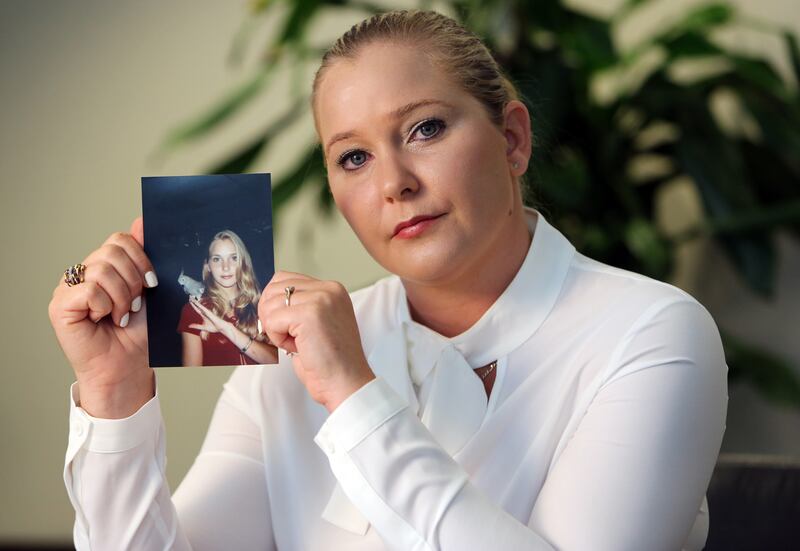
The attempt to cast those failings as “it’s all the queen’s fault” is implausible and revisionist.
The decision in 2019 to withdraw him from public life after the catastrophic Newsnight interview was forced upon her by Charles himself.
Yes, at the Duke of Edinburgh’s memorial service in March 2022, she allowed Andrew to escort her down the nave of Westminster Abbey. The optics were bad, but the act itself was maternal, not political: a widow leaning on her son.
Robert Hardman, who chronicled the event in his book Queen of Our Times, wrote that it was “very much her day, and her call,” and that the family accepted it as a one-off. To conflate that misjudgment into a grand abdication of duty is to rewrite history in the crudest terms.
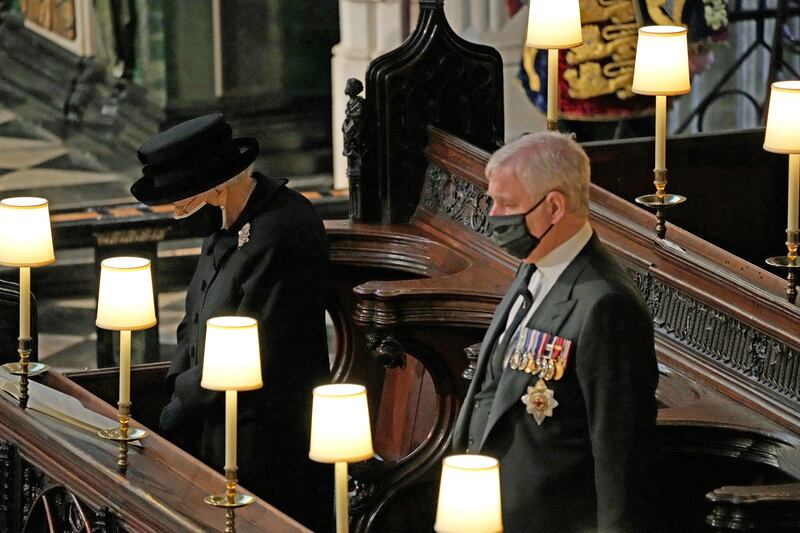
Yes, Andrew sought, as Hardman has put it, to “rearrange the furniture,” appealing to his mother’s indulgence and trying to undo agreements made by his brother. Yes, when Andrew sulked, the queen yielded. Yes, she had a blind spot when it came to her favorite son.
But to translate that historical truth into the charge now being leveled by the king’s team—that Elizabeth somehow planted an “unexploded bomb” beneath her son’s throne—is a grotesque slur on his mother utterly unworthy of the king.
When she died in September 2022, Andrew was already out, stripped of patronages, titles, and any public role. At the final Christmas of his mother’s life, he had been barred from the family walk to church at Sandringham. He attended an early private service, alone.
The notion, three years later, that his mother’s handling of the matter was disastrous is outrageous revisionism.
In fact, the settlement Charles inherited was clean, comprehensible, and, crucially, tolerated by the public.
The descent began, in fact, the moment Charles became king. His mother had been entombed scarcely 12 weeks when, at Christmas 2022, Andrew appeared once again on the public walk to church at Sandringham. The symbolism was unmistakable.
This was Charles’ doing.
Courtiers briefed volubly that the king wished to present himself as the Christian reconciler, the benevolent monarch who healed family wounds. It was, they said, his “duty of forgiveness.”
The photographs, however, told another story: the smug duke smiling, well aware he was back under the royal umbrella, the rehabilitation underway.
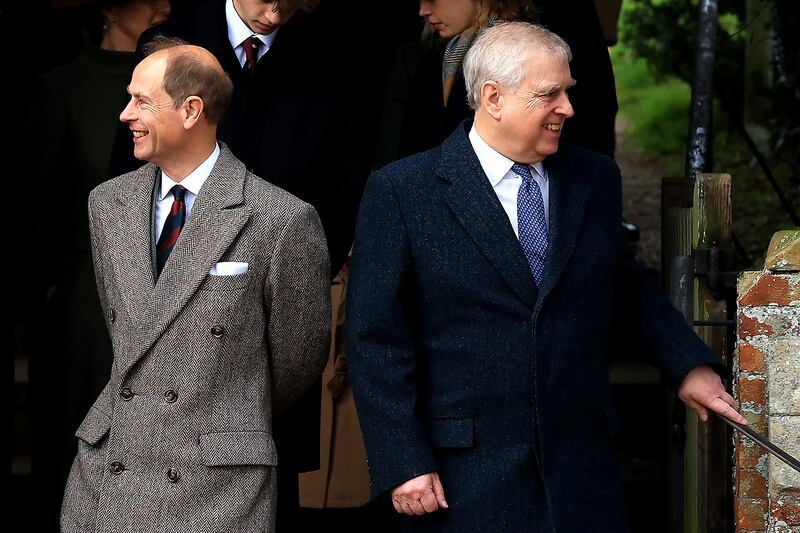
From there, the drift became a pattern. Easter 2023: Andrew at Windsor with the family. Summer: Balmoral. Christmas 2023: in open defiance of William and Kate’s objections, both Andrew and Sarah Ferguson joined the royal party for the walk to church.
A few weeks later, in January 2024, the absurdity reached its peak when the king ordered William to drive his uncle to church—an instruction intended to display paternal authority over the heir.
The Wales camp briefed furiously that they had been “obliged” to comply. Then, within weeks, came the king’s cancer announcement, and the entire balance of royal power shifted. William and Catherine withdrew from all association with Andrew. The king, weakened but stubborn, pressed on with his twin obsessions: showing himself merciful, and forcing his brother from Royal Lodge, and failing in both.
What has changed since is not the queen’s record but Charles’ need for alibis.
His reign, truncated by illness and mismanaged by courtiers frightened of what is coming next, has been beset by reversals.
The drive to evict Andrew from Royal Lodge, undertaken “in partnership” with William, has become an unending farce, blocked by a cast-iron lease and by the monarch’s own sentimental vacillation (although Andrew is expected to move out soon enough).
Reports have emerged that the king even tried to secure Andrew’s presence at Catherine’s Christmas carol concert last winter. The request was flatly refused.
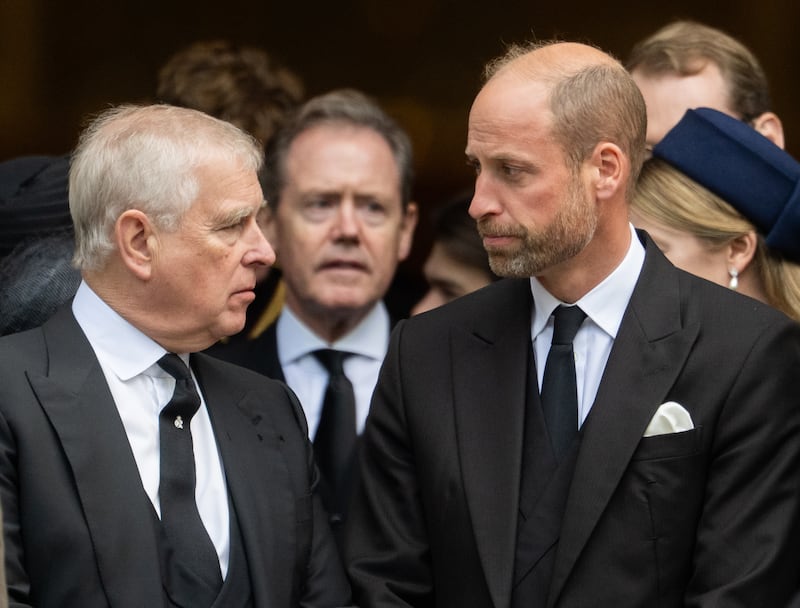
Within weeks, the Chinese-spy revelations surrounding Andrew broke, vindicating William’s caution and exposing the king’s misjudgment.
Still, the rehabilitation project lumbered on! In spring 2025, Sarah Ferguson was at Buckingham Palace for a cancer event, invited, astonishingly, by the king himself. The message was unmistakable. The Windsor amnesia was complete.
Meanwhile, Andrew was still appearing beside the king of England at family gatherings such as the Duchess of Kent’s funeral on Sept. 16, to which he received a police escort and was seated in the front row.
Charles is the very embodiment of inconsistency. The Sunday Times story should actually be understood, I think, as a confession. This is a ruler who cannot bear responsibility, searching for a ghost to blame.
Charles’ attempt to style himself as healer-in-chief has backfired in grand style. At every turn he invokes his Christian duty to forgive, even as he wages bureaucratic war on his brother’s tenancy and his son’s inheritance.
The rhetoric of mercy cannot coexist with the reality of protecting an unrepentant (alleged) sex offender. Charles has belatedly discovered this and seeks to blame his dead mother. It’s disgraceful.
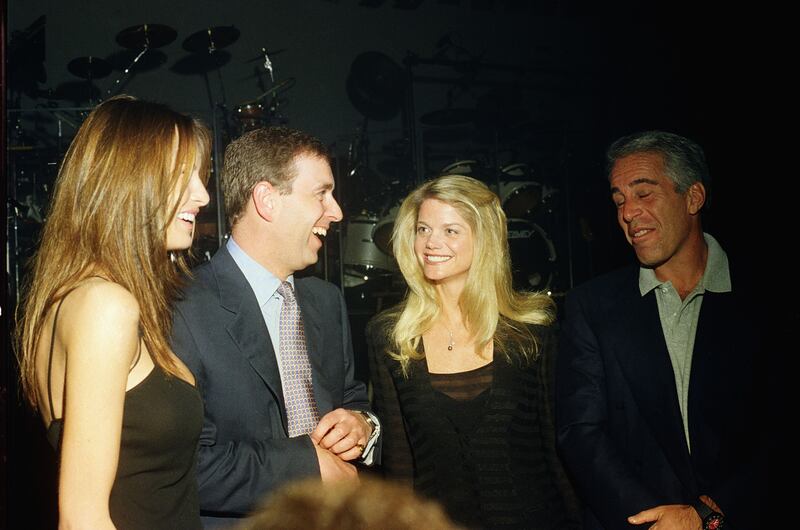
Inside the palaces, the mood has become baroque. Friends of Queen Camilla tell me she is “exhausted” after a brutal year managing her husband’s illness. The king himself looks frail.
Skeptics might say that these sympathetic leaks serve the same purpose—to construct an atmosphere of beleaguered virtue around the sovereign and his consort, the better to deflect attention from strategic blunders.
The truth is that Charles believed he could redeem Andrew through proximity, that the brother who shamed the family could, by standing quietly beside him, absorb a little of his legitimacy. Instead, it is the king who has absorbed the taint.
The queen’s alleged posthumous culpability is beneath Charles.
It is also a grossly ungrateful response to her final political act, which was to name Camilla queen.
She didn’t have to do that. She did it for her son.
It is a huge mistake by the palace to try to weaponize Elizabeth II’s long shadow, because the British public knows she was a monarch who reigned dutifully to her last breath, while her heir has turned forgiveness into a farce.
The queen did not cause the Andrew crisis. She contained it.
It is the king—with his vanity, his fatal need to please, his confusion of mercy with weakness—who reignited it.
If you or a loved one are struggling with suicidal thoughts, please reach out to the National Suicide Prevention Lifeline by dialing or texting 988.
Want more royal gossip, scoops and scandal? Head over to The Royalist on Substack
The post Desperate King Charles’ Aides Blame Queen Elizabeth For Andrew Crisis appeared first on The Daily Beast.
